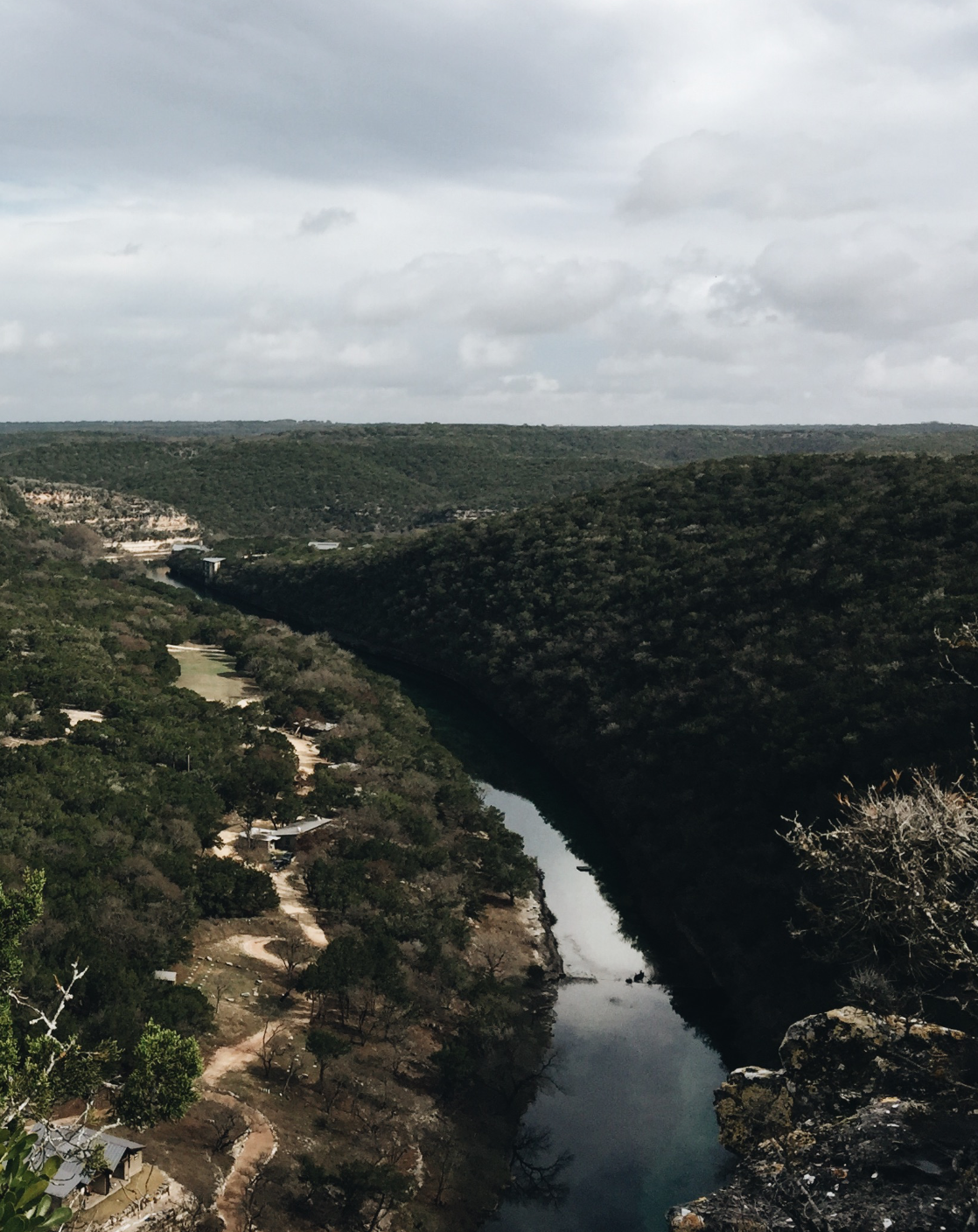Feeling Our Way Toward a Light So Lovely
Throughout 2018 so far I have been reading through the Psalms slowly, feeling my way through them chapter by chapter, verse by verse. This past weekend Nate and I were a part of an Art and Prayer retreat at Laity Lodge (one of my favorite places on earth) and to our delight, it was on the book of Psalms. Nate is also working his way through the Psalms so it was a real blessing to both of us to soak in the entire book for four days.
During Lent I added the book of Acts to my daily reading. The book of Acts and I have a squirrely relationship. So many of my formative years were spent in it—mostly intended by church leaders to push parishioners toward a Spirit soaked life, but becoming mostly a millstone around my neck. Part of that is I never really read the book for myself so I believed wrongly about many things and did not know what to believe at all about other things. Five years ago that changed when a pastor from my church took a group of us through the entire book, line by line by line. It was, without doubt, one of the most Spirit-filled experiences of my life and profoundly healing.
This morning I read Paul's words in Acts 17:
The God who made the world and everything in it, being Lord of heaven and earth, does not live in temples made by man, nor is he served by human hands, as though he needed anything, since he himself gives to all mankind life and breath and everything. And he made from one man every nation of mankind to live on all the face of the earth, having determined allotted periods and the boundaries of their dwelling place, that they should seek God, and perhaps feel their way toward him and find him. Yet he is actually not far from each one of us, for
'In him we live and move and have our being’;
as even some of your own poets have said,
‘For we are indeed his offspring.’
That phrase "perhaps feel their way toward him and find him" feels like such a generosity from God this morning. I am so much a part of a thinking tradition now and live among a people who think more than feel much of the time, and find often the feeling parts of our faith are thrust to the margins or outskirts or what we call "mountain top experiences," the sort no one wants to deny but everyone agrees shouldn't be normative. It seems as though in my previous church tradition I felt pressure to have a feeling moment at every service, in every prayer, at every retreat, in every song. The pendulum swings as it is wont, though, and I cannot remember the last time I wept or felt my way toward anything resembling God and found him there.
This weekend, though, as we covered the gamut of psalms, praises and laments, questions and doubts, assurances and ascriptions, I felt an inkling of something akin to feeling anything. Permission perhaps?
In many of the "Spirit-filled" churches the felt emotion of preference is mostly joy, as in if you don't feel joy there must be some secret sin lurking about in your closets. In many of the "Word full" churches the emotion of preference is surety, as in a ready defense and constant apologetic and never, never, never sadness or brokenness for long because, goodness gracious, we know the Gospel and the hope therein. But these are the same broken mechanisms at work in both, namely: we're uncomfortable with uncertain emotions. Or the motions of uncertainty.
You know who isn't uncomfortable with uncertain emotions? Poets. Artists. Psalmists. Musicians. Mostly. This is why I love that immediately after Paul uses the words "feel their way toward God and find him," he quotes some of their poets. Paul is saying there is something about a poem or verse or piece of art or music that stirs something inside us sometimes—and it's not always sola scriptura. Paul says some who feel their way toward God won't even find him in temples made by men, and that the boundaries of our dwelling places are determined by God and not men. Psalm 16 says our "boundary lines have fallen in pleasant places, indeed we have a beautiful inheritance."
This seems to me wildly permissive of God and not the God I understand him to be most of the time.
We are drawn to him (and not just once but again and again and again) by his beauty and not always in the dwelling places and temples made by human hands (A cathedral made by pine trees perhaps? Or the bluff of a canyon? Or a flat rock on the summit of a mountain? Or a poem?). Not always in rigid, unbending theology formed more by the other Christians with whom we spend most of our time and less by thousands of years of church history or by the sound of water falling down a rock cut. Not always in the lyrics of modern worship music but sometimes there, and sometimes in the ancient poets too. Not always in being right and going to bed satisfied you won every argument or know every technical theological term, but sometimes in simply listening to what is beautiful even if its truth is a more difficult wrestle.
Madeleine L'Engle writes in Walking on Water, “We do not draw people to Christ by loudly discrediting what they believe, by telling them how wrong they are and how right we are, but by showing them a light that is so lovely that they want with all their hearts to know the source of it.”
A light so lovely they want with all their hearts to know the source of it and to "perhaps feel their way toward God and find him."

